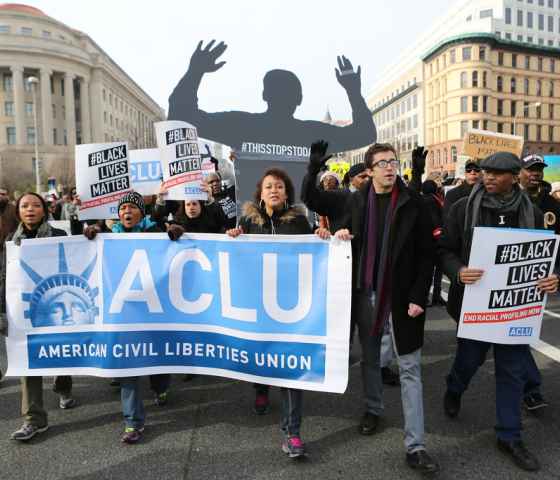Public schools can have dress codes, but they can't be discriminatory or censor student expression.
By Galen Sherwin, ACLU Women's Rights Project
Last week, a school principal and security guard threatened a senior named Summer at Hickory Ridge High School in Harrisburg, North Carolina, with arrest for violating her school dress code because she was wearing a shirt that showed her collarbone and shoulders. Defiant, she spoke out — protesting the discipline and refusing to budge until the principal called her mom — though she did put on a jacket. After the school suspended her, threatened her with expulsion, and barred her from walking in graduation, many of her classmates protested her treatment on social media — and the case blew up in the press.
Such nonsense isn't confined to North Carolina.
The same week, a Massachusetts' charter school made headlines for penalizing two African-American sisters for violating their school dress code by wearing their hair in braids with extensions. The state attorney general has ordered the school to modify its policy, and the ACLU, the NAACP Legal Defense and Education Fund, and the Lawyer's Committee for Civil Rights have jointly filed a complaint with the state education department on her behalf. And a similar case just arose in Florida, where a student, Jenesis Johnson, was told her Afro was "extreme and faddish and out of control" and told she could not return to school unless she changed her hairstyle.
Read the full post here.
